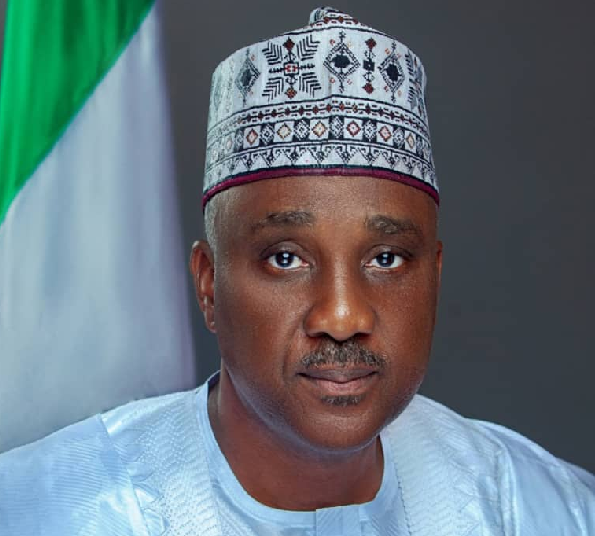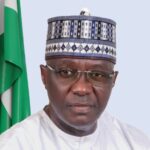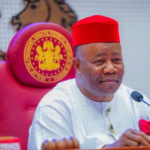The ninth G20 Parliamentary Speakers’ Summit (P20), organised by the Indian parliament in collaboration with the Inter-Parliamentary Union (IPU) in New Delhi, India, has come and gone, but its memories will continue to linger in the minds of parliamentarians across the globe, especially those who attended the three-day event.
This is because the summit, tagged ‘Parliaments for One Earth, One Family, One Future’, afforded parliamentarians from various countries the opportunity to brainstorm, share experiences, cross-fertilise ideas and proffer solutions to the challenges facing the world.
Recognising that parliament can contribute substantively to fulfilling the mandate of the G20, the P20 was created in 2010 to bring to the fore the parliamentary dimension to global governance and build support for international commitments.
This year’s summit was unique as, in addition to the parliaments of the G20 countries and the IPU, it was attended by delegates from 10 countries, including Nigeria. Other special invitees were Bangladesh, Comoros, Egypt, Mauritius, the Netherlands, Oman, Singapore, Spain and the United Arab Emirates.
Hon. Jajere unperturbed about Super Eagles’ AFCON ‘group of death’
How Abbas, Barau showcased Nigeria’s potential at the World Parliamentary Summit
The Speaker of the Federal House of Representatives, Rt. Hon. Tajudeen Abbas, the Deputy President of the Senate, Senator Barau I Jibrin, and seven other lawmakers represented Nigeria at the world parliamentary summit held between October 12 and 14, this year.
For three days, the Nigerian delegation led by the Speaker, Tajudeen Abbas, shared experiences with presiding officers from parliaments of the G20 nations and invited countries, thus promoting Nigeria on the global stage.
The other lawmakers on the Nigerian delegation were the Deputy Senate Minority Leader, Senator Kamorudeen Oyewumi, Senator Abdulaziz Yari, Senator Ipalibo Banigo, Rep. Abdulmumini Ari, Rep. Olumide Osoba, Rep. Fredrick Agbedi and Rep. Sulaiman Abubakar.
Inaugurating the summit, Indian Prime Minister Narendra Modi described the gathering as a unique confluence of various parliamentary practices from around the world.
Preaching peace in the world, Modi said a world full of conflicts and confrontations is in no one’s interest.
“A divided world cannot provide solutions to the major challenges facing humanity. This is the time of peace and brotherhood, a time to move together. This is a time for growth and well-being for all.
“We have to overcome the global trust crisis and move forward with human-centric thinking. We have to look at the world in the spirit of One Earth, One Family, One Future,” he said.
Expressing happiness over the pan-African participation, he said Africans were included for wider participation in global decision-making.
During the pre-summit session on the environment, Speaker Tajudeen Abbas told the forum that climate change impacts developing countries in various ways due to their greater vulnerabilities and lesser capacities to adapt.
He said Nigeria, Africa’s most populous and diverse nation, faces specific challenges due to climate change.
In the northern part of Nigeria, the Speaker said increasing desertification has negatively affected farming, while unpredictable rainfall patterns have affected crop yields in the southern parts.
He said a direct consequence of this is an economic strain, given that agriculture is a significant sector of Nigeria’s economy. Coastal areas, especially around the Niger Delta, face an increased risk of flooding due to rising sea levels and changing rainfall patterns, he also stated.
He told the summit that parliaments are pivotal in advocating for and garnering mass support for climate initiatives.
On his part, the Deputy President of the Senate, Senator Barau I. Jibrin, addressed the summit on ‘Transformation in People’s Lives Through Public Digital Platforms: The Nigerian Experience’. He shared the journey of Nigeria’s digital transformation.
Barau, while highlighting the impact of digital platforms in various sectors of the Nigerian economy, assured the global community of the commitment of the National Assembly to review the country’s laws to address the challenges facing the country.
He said that although developed countries have gone far in the use and operation of digital technology, developing countries like Nigeria, are also tapping into the global trend, hence providing vast opportunities to their citizens.
He said digital platforms are being deployed in the areas of democratic governance and political accountability by the government, the media and civil society organisations.
“Nigeria has diligently invested in digital infrastructure, established robust cyber security frameworks, and implemented digital identity systems.
The Deputy President of the Senate said Nigeria’s experience of transformation through public digital platforms stands as a testament to the nation’s resilience, adaptability and unwavering commitment to improving the lives of its people.
“The 10th Senate is committed to reviewing our country’s laws to address the challenges not only in ICT but in all sectors of the Nigerian economy.
“To this effect, we are ready to partner with other members and participants of this 9th P20 Summit and G20 Parliamentary Forum to maximise the prospects of globalisation embedded in the effective utilisation of ICT infrastructure for the mutual benefit of our countries,” he stated.
During the summit, the Nigerian delegation had discussions with the heads of parliaments of different countries, including the Speaker of the House of Commons, Rt. Hon. Sir Lindsay Hoyle, and the Speaker of the Lok Sabha (Indian Parliament), Shri Om Birla.
On the sidelines of the summit, a dinner was organised by the High Commissioner of Nigeria to India, Ambassador Ahmed Sule, for the delegation. The event allowed the embassy officials to relate with members of the delegation and discuss the investment opportunities in India for Nigeria.
Mudashir is the Special Adviser (Media & Publicity) to the Deputy President of the Senate

 Join Daily Trust WhatsApp Community For Quick Access To News and Happenings Around You.
Join Daily Trust WhatsApp Community For Quick Access To News and Happenings Around You.


